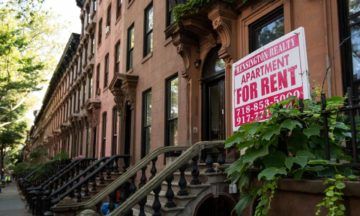Mark Blyth in The Guardian:
 I travelled to New York City in August for the first time since the pandemic began, to visit friends who had just bought their first home. They are firmly upper-middle class and in their 40s. They took out a mortgage for $1.5m (£1.1m) to buy a place in a Brooklyn neighbourhood that was regarded until recently as an area immune to gentrification. So far, so typical. Asset ownership comes late these days.
I travelled to New York City in August for the first time since the pandemic began, to visit friends who had just bought their first home. They are firmly upper-middle class and in their 40s. They took out a mortgage for $1.5m (£1.1m) to buy a place in a Brooklyn neighbourhood that was regarded until recently as an area immune to gentrification. So far, so typical. Asset ownership comes late these days.
On the second day of my visit I saw a group of twenty- and thirtysomethings sitting together in a local park (of the type illuminated by sodium lights to discourage drug dealing). They had gathered around a banner announcing a meeting of the local tenants’ rights union. Almost every member of the group looked as if they could have featured in the pages of an Ivy League magazine. All bar one were white. Their neighbourhood was not.
I asked my host to explain this. She said real-estate investors were buying up single family homes, bulldozing them and building slick new apartment blocks. Given the stagnant supply of housing and the increasing demand for places to live, local rents were now “crazy”, and relatively wealthy residents were forming tenants’ unions. “Housing is now an asset class for the uber-rich,” she said. “What do you expect?”
We’ve all got used to the claim that housing is now an asset class, but few of us really think through what that means, or how we got here.
More here.
